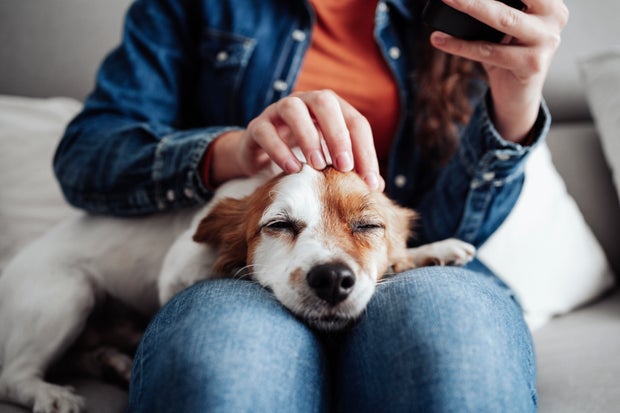How to keep pets safe during Hurricane Ian
Millions of Floridians were advised to evacuate ahead of Hurricane Ian's landfall on the peninsula. For days, residents have been preparing for the powerful storm that severely damaged Cuba, knocking out power across the country.
Residents who stayed behind were preparing for heavy winds and potentially massive storm surges, boarding up windows, lining up sandbags and gathering items for emergency kits to help keep family members safe.
If you're a pet owner, you'll want to make sure you're creating a separate checklist solely for your pet. Here are some ways to keep your pets safe that can give you some peace of mind during severe weather.
5 ways to keep your pets safe during a hurricane
Those who are evacuating or leaving their homes to stay with other family or friends should always bring their pets with them. Storms are often unpredictable and storm damage and flooding could prevent you from immediately accessing your home even after the storm passes. Pet owners who didn't leave should make sure to bring their pets indoors to shield them from the severe weather.
Here's some more guidance from the American Society for the Prevention of Cruelty to Animals on how to keep your animals safe during a storm like Hurricane Ian:
Take shelter
First and foremost, it's important to make sure your pets are secure inside a home. If you have a basement or room without windows, that's even better. (You can also create a makeshift potty for the animal so they can remain indoors at all times until it's safe to go back outside).
Keep pesticides or poisons away
Make sure your cleaning products, pesticides or any other poisonous items are kept away from your pet's reach. "Unfortunately, pets are very good at finding baits and many are all too eager to eat it," the ASPCA warned, particularly if you're keeping your animals in the basement. Always keep an eye on your furry friend to make sure they're not getting into anything dangerous.
Prepare for anxiety
Animals may experience anxiety during severe weather, particularly if they're sheltering in a new location, such as a basement, that they're not as familiar with. Make sure you have necessary prescribed medications nearby or materials that may comfort your pet — such as thunder jackets for dogs.
Prepare to evacuate
If you experience severe flooding, then you may need to evacuate your home. In that case, it's important to be prepared: Have a leash, collar, dog tags, pet carrier and any other essential paperwork on hand if you need to leave your home. "Pet owners should know where favorite hiding places are for pets so they can be easily found during emergencies," the ASPCA says. Make sure to follow official guidance from local authorities.
Gather together a first aid kit
Prepare an emergency first aid kit (similar to one made for humans), complete with any necessary prescriptions, gauze, gloves, antibiotic ointment, tape and more. See the ASPCA's tips to create your very own kit.
